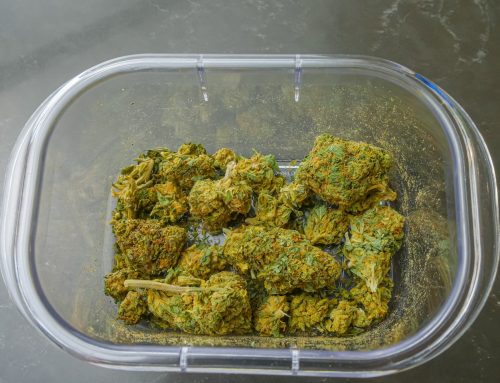Nurturing Nature:
The Green Heart of the Cannabis Industry’s Sustainable Practices

Welcome, conscious consumers and environmentally-minded enthusiasts, to another enlightening blog from TopFuel Delivery! Today, we’re diving into a topic that’s close to our hearts and the planet’s well-being: sustainable practices within the cannabis industry. Join us as we shed light on how eco-friendly cultivation and production methods are taking root and making a positive impact on our environment.
Cultivating Green: The Path to Sustainability
In an era where environmental responsibility finally takes center stage, the cannabis industry is stepping up to the plate with innovative sustainable practices. As cannabis gains recognition for its medicinal and recreational potential, it’s essential that its growth is harmonious with Mother Nature.
Low-Impact Cultivation Methods
Eco-friendly cultivation methods are at the forefront of this movement. Forward-thinking cultivators are embracing techniques that minimize environmental impact. One such method is outdoor cultivation, harnessing the power of sunlight and minimizing energy consumption. Indoor growers are also making strides by utilizing energy-efficient lighting and ventilation systems, reducing their carbon footprint.
Throughout their history, India has linked cannabis with spiritual practices.
During the festival of Holi, people consume Bhang, a traditional preparation made from cannabis, milk, and spices, to connect with the divine.
Additionally, cannabis is linked to Lord Shiva, with beliefs that he used it to aid meditation and enlightenment.
Indigenous communities across the world have integrated cannabis into their spiritual practices.
Native American tribes like the Lakota have incorporated cannabis as a tool for healing and communication with spirits.
Similarly, some Amazonian tribes use cannabis as part of their ayahuasca ceremonies for vision quests and spiritual insights.
Just as organic food resonates with health-conscious individuals, organic cannabis appeals to eco-conscious consumers, with practices like regenerative farming actively replenishing the soil and promoting sustainability.
OUR NEWSLETTER
Subscribe to our cool newsletter.
Harnessing Renewable Energy
In the realm of production, renewable energy sources are making waves. Cannabis facilities are adopting solar panels, wind turbines, and other renewables to power their operations sustainably. This not only reduces greenhouse gas emissions but also paves the way for a greener future for the industry.
Sustainability doesn’t stop at cultivation and production—it extends to packaging too. Forward-thinking companies are turning to biodegradable, compostable, and recyclable packaging materials to reduce waste and minimize their environmental footprint.
The collective efforts of the cannabis industry towards sustainability are reaping positive rewards for the environment. Reduced energy consumption, decreased carbon emissions, and restored soil health are just a few of the notable benefits. By supporting eco-friendly cannabis practices, consumers are contributing to a cleaner, healthier planet.
As conscious consumers, your choices wield power. By supporting cannabis products cultivated and produced through sustainable practices, you’re fostering a demand for eco-friendly solutions within the industry. Your preference for greener alternatives sends a powerful message that resonates far beyond the cannabis sector.
At TopFuel Delivery, we’re proud to align with the cannabis industry’s sustainable evolution. From low-impact cultivation to renewable energy adoption, every step counts in creating a greener, more harmonious future. We invite you to explore our selection of products that embrace these principles, helping you make choices that reflect your commitment to both well-being and the environment.
*Disclaimer: The information provided in this article is for educational purposes only. Please consult local regulations and guidelines before making any decisions related to cannabis consumption or supporting sustainable practices.





